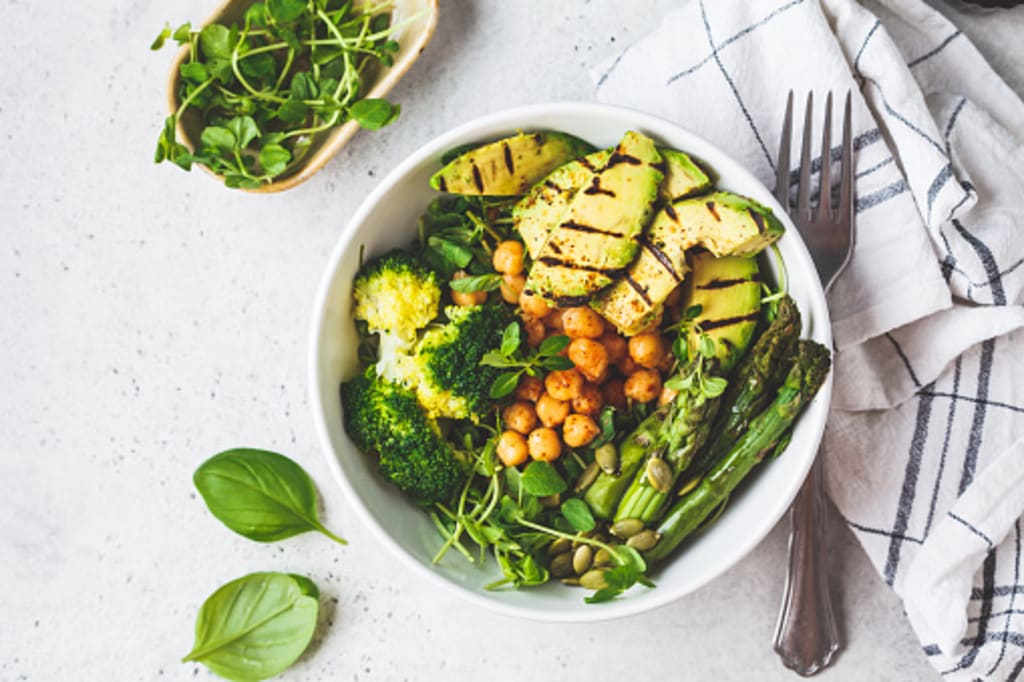
To check the best keto diet plan Click Here
The ketogenic diet, or keto diet for short, is a low-carb, high-fat diet that has gained popularity in recent years for its potential health benefits. The main idea behind the keto diet is to get your body into a state of ketosis, where it burns fat for fuel instead of carbohydrates.
In this article, we'll take a closer look at the keto diet, how it works, and what you need to know to get started.
What is the Keto Diet?
The ketogenic diet is a low-carb, high-fat diet that has been used for over a century to treat certain medical conditions, such as epilepsy. The diet is based on the idea that when you restrict your carbohydrate intake, your body will start to break down fat for energy instead of glucose.
The typical macronutrient breakdown for a ketogenic diet is around 70% fat, 20% protein, and 10% carbohydrates. This means that you'll be eating a lot of foods that are high in healthy fats, such as avocados, nuts, and oils, while avoiding foods that are high in carbohydrates, such as bread, pasta, and sugar.
How Does the Keto Diet Work?
When you eat a lot of carbohydrates, your body breaks them down into glucose, which is then used for energy. However, when you restrict your carbohydrate intake, your body will start to break down fat for energy instead.
When you eat a lot of fat, your body produces ketones, which are molecules that are produced when your body breaks down fat. These ketones can be used for energy instead of glucose, which is why the keto diet is called a "ketogenic" diet.
To get into a state of ketosis, you need to restrict your carbohydrate intake to around 50 grams per day or less. This will vary depending on your body size, activity level, and other factors, but it's a good starting point for most people.
Benefits of the Keto Diet
There are several potential health benefits of the keto diet, including:
Weight Loss: The keto diet can be an effective way to lose weight, as it can help you to burn fat for energy instead of glucose. In addition, the high-fat, low-carb diet can help to reduce hunger and increase feelings of fullness, which can make it easier to stick to a calorie-controlled diet.
Improved Blood Sugar Control: The keto diet may also help to improve blood sugar control in people with type 2 diabetes. This is because it can help to lower blood sugar levels and reduce the need for insulin.
Reduced Risk of Heart Disease: Some studies have suggested that the keto diet may help to reduce the risk of heart disease by improving cholesterol levels and reducing blood pressure.
Improved Brain Function: The ketogenic diet has been shown to improve brain function in some studies, potentially reducing the risk of conditions such as Alzheimer's disease and Parkinson's disease.
Foods to Eat on the Keto Diet
When following the keto diet, you should focus on eating foods that are high in healthy fats, such as:
Avocado
Nuts and seeds
Oils (e.g., olive oil, coconut oil)
Fatty fish (e.g., salmon, tuna)
Cheese
Butter and cream
Meat and poultry
You should also aim to eat plenty of non-starchy vegetables, such as:
Leafy greens (e.g., spinach, kale)
Broccoli
Cauliflower
Zucchini
Brussels sprouts
Asparagus
Foods to Avoid on the Keto Diet
When following the keto diet, you should avoid foods that are high in carbohydrates, such as:
Bread
Pasta
Rice
Potatoes
Sugar
Candy and sweets
In addition to avoiding high-carbohydrate foods, there are some other foods and ingredients that you should also avoid on the keto diet, including:
Processed Foods: Many processed foods are high in carbohydrates and added sugars, making them unsuitable for the keto diet. This includes packaged snacks, baked goods, and frozen meals.
Grains: All grains, including wheat, corn, and rice, are high in carbohydrates and should be avoided on the keto diet.
Fruit: While fruit is healthy and nutritious, it's also high in natural sugars and carbohydrates. On the keto diet, you should limit your intake of fruit and stick to low-sugar options like berries.
Beans and Legumes: Beans and legumes are high in carbohydrates and should be avoided on the keto diet. This includes black beans, lentils, and chickpeas.
To check the best keto diet plan Click Here
About the Creator
Enjoyed the story? Support the Creator.
Subscribe for free to receive all their stories in your feed. You could also pledge your support or give them a one-off tip, letting them know you appreciate their work.





Comments
There are no comments for this story
Be the first to respond and start the conversation.